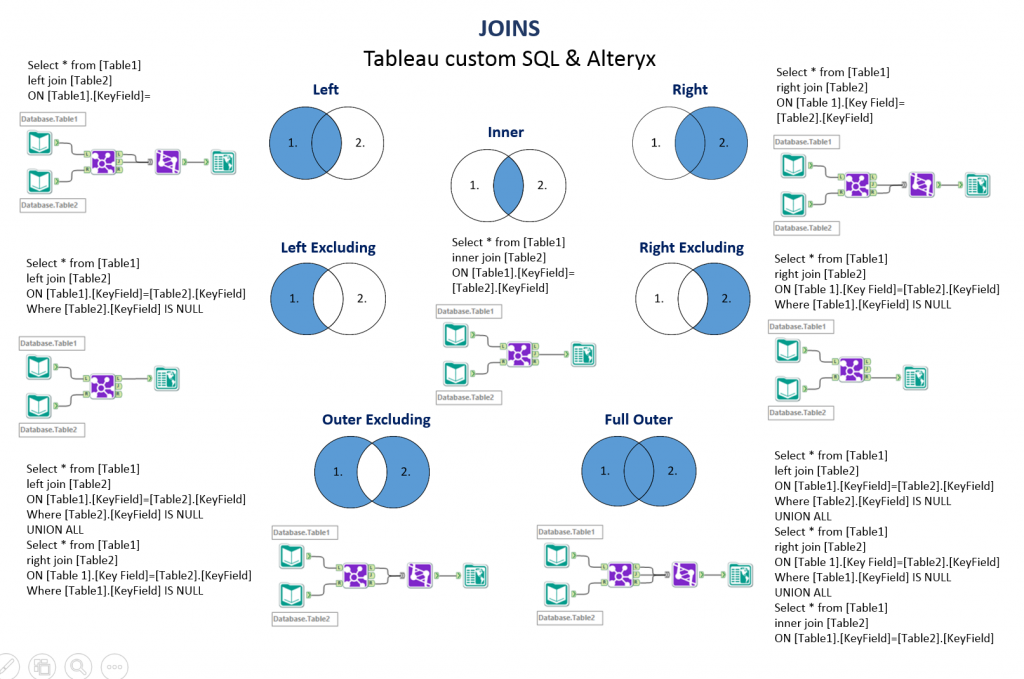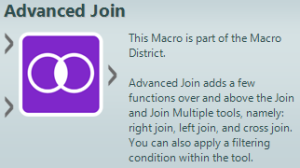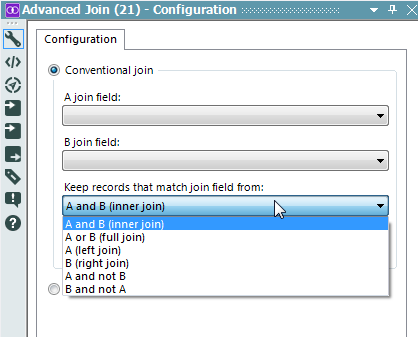Old habits die hard…
The main obstacle I found when ramping up on Alteryx was to understand how to perform a very basic task: Joining two tables!
The mainstream SQL way to Joins was ingrained in me, reinforced by Tableau Blending and Alteryx has adopted a quite different approach with the objective of being more user friendly by not requiring knowledge of SQL. Yet the first step is tricky, as the Alteryx way can require a sequence that adds the Union tool to the Join tool…
Here is the standard Alteryx explanation:
http://community.alteryx.com/AlteryxArticle?id=kA0E00000000VyhKAE
Yet, I wish I had this excellent resource when I started:
http://www.theinformationlab.co.uk/2015/02/05/joining-data-tables-tableau-alteryx/
Kudos to Laszlo Zsom for detailing the respective approaches, and concluding with this summary to keep handy:

Information Labs’ excellent cheat sheet
Now if you still can’t get over having to drop that old SQL habit while using Alteryx, there is an option for you: the Advanced Join tool!
This tool is not part of the “factory install” of Alteryx, and is not officially maintained, but it is a free macro, very easy to install and use:
http://www.alteryx.com/blog/engine-works/advanced-join-macro
It offers a very simple configuration:
And I tested it extensively, works great! Beats a VLOOKUP() any day if you ask me…



Pingback: 10 Tricks to adopt Redshift In-DB | Insights Through Data
These examples are meant to help analysts who write SQL code to understand how to translate their SQL knowledge into an Alteryx workflow.